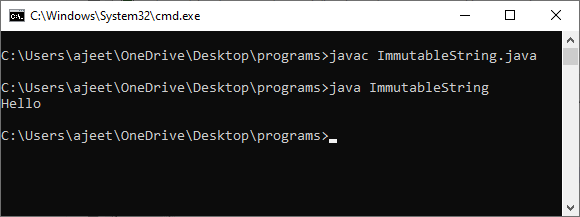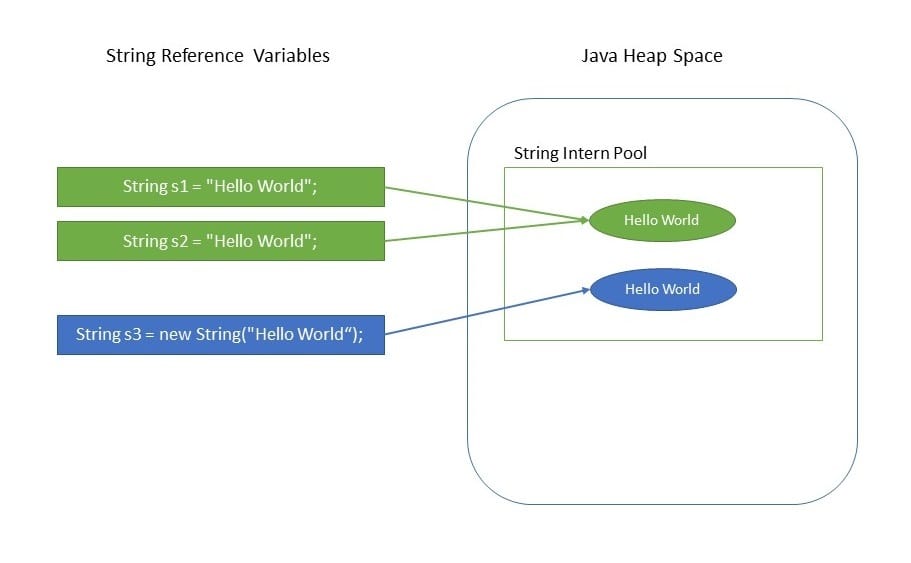Immutable Strings: A Secret Element in Ensuring Data Uniformity and Dependability
In the realm of data monitoring, the importance of unalterable strings can not be overemphasized. The idea of unalterable strings transcends simple technicality; it is a linchpin in the complicated web of information governance.
The Concept of Immutable Strings
Unalterable strings, a fundamental concept in programs, refer to strings that can not be modified as soon as they are produced. In essence, as soon as a string value is assigned, any procedure that shows up to customize the string in fact creates a brand-new string. This immutability guarantees information consistency and reliability in applications, as it prevents unexpected modifications to the original information.
Advantages in Information Uniformity

Data consistency is critical in various facets of software program development, consisting of data source administration, multi-threaded atmospheres, and distributed systems (Why are strings immutable in Java?). Unalterable strings contribute substantially to accomplishing this uniformity by avoiding data corruption as a result of simultaneous gain access to. In scenarios where multiple procedures or strings connect with the very same information concurrently, unalterable strings function as a guard versus race conditions and synchronization concerns
Moreover, the immutability of strings simplifies debugging and screening processes. With immutable strings, developers can rely on that once a string is set, it will remain unchanged, making it much easier to trace the source of mistakes and making sure that test situations create consistent outcomes. This integrity in information managing inevitably leads to more durable and secure applications.

Carrying Out Immutable Strings
Making certain the immutability of strings calls for a thoughtful strategy to their execution in software application advancement. One vital technique is to create string classes in such a way that avoids modifications once a string item is created. By making strings immutable, programmers can improve information uniformity and reliability in their applications.
To execute unalterable strings successfully, programmers need to favor producing brand-new string items rather than modifying existing ones. This practice guarantees that when a string is designated a value, it can not be changed. Additionally, any type of procedure that appears to change the string must develop a new string with the wanted modifications as opposed to changing the original.
Moreover, utilizing unalterable strings can simplify concurrency administration in multi-threaded atmospheres. Since unalterable strings can not be transformed after production, they can be safely shared amongst several strings without the danger of check data corruption.
Role in Dependability Guarantee
In software program growth, the application of immutable strings plays a vital duty in making sure the integrity of data operations. Unalterable strings, once produced, can not be modified, guaranteeing that the information they represent continues to be constant throughout the application's implementation. This immutability building provides a level of guarantee that the data being refined will not be unintentionally changed, leading to unanticipated outcomes or errors in the system.
By integrating immutable strings right into software program layout, programmers can boost the dependability of their applications by lessening the dangers associated with mutable information - Why are strings immutable in Java?. Immutable strings aid in avoiding data corruption or unexpected adjustments, which can be particularly important visit this website when managing delicate details or when information stability is paramount
Additionally, using unalterable strings simplifies concurrent handling, as several threads can securely access and share string information without the threat of one string changing the material while an additional is reviewing it. This facet contributes substantially to the total integrity of the software program system, making sure regular and foreseeable behavior in information handling operations.
Applications and System Integration
The smooth assimilation of unalterable strings into numerous applications and systems is crucial for ensuring durable data consistency and dependability throughout diverse technological environments - Why are strings immutable in Java?. Immutable strings play a crucial duty in enhancing the stability of data exchanges and interactions within facility software ecosystems. By integrating immutable strings into applications, developers can reduce the dangers linked with information meddling, unapproved alterations, and unintentional alterations, consequently strengthening the overall protection posture of the system
In the context of system integration, immutable strings function as a fundamental component for developing safe and secure communication channels and promoting seamless information transfers in between various components. Their immutable nature makes sure that information transmitted in between systems continues to be verifiable and unmodified, reducing the probability of incongruities or mistakes that could jeopardize the integrity of the whole system. Moreover, weblink unalterable strings can enhance interoperability in between diverse systems by supplying a standardized format for information representation, making it possible for a lot more efficient information handling and exchange protocols across interconnected systems. By adopting unalterable strings in applications and system assimilation procedures, organizations can strengthen their data framework and maintain the dependability and consistency of their information properties.
Verdict
In conclusion, unalterable strings play a critical role in maintaining information uniformity and integrity in various applications and system integrations. By ensuring that strings can not be altered once developed, the integrity of data is protected, minimizing the threat of variances and mistakes. Applying immutable strings can considerably enhance the reliability of systems, inevitably causing even more exact and reliable data handling.
